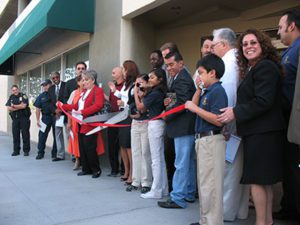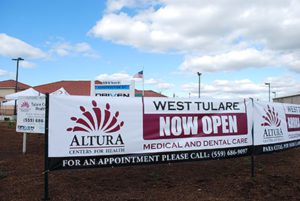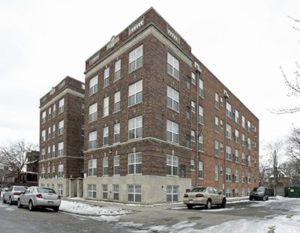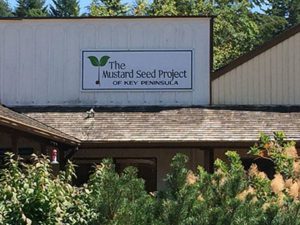Capital Impact Partners’ Third Quarter Financing Supports Increased Access to Quality Education, Health Care, and Housing Throughout U.S.
$27 million in project financing will create social impact for underserved communities across five states
Arlington, VA (11/7/2016)—Capital Impact Partners announced today that it provided $27 million in financing to projects delivering social impact to underserved communities across the U.S. during the third quarter of 2016. Charter school financing in multiple states represented a big focus during the quarter, with additional loans helping to increase access to quality health care in California, affordable housing in Detroit, and dignified elder care in Pennsylvania and Washington. Of particular note is the fact that nearly half of the ventures represent continued relationships with existing borrowers.
“I’m thrilled to see how many of these projects include existing borrowers of ours,” said Ellis Carr, president and CEO of Capital Impact Partners. “Whether it was launching a completely new facility, turning a predevelopment loan into an acquisition loan, or refinancing an existing loan at better rates—these relationships demonstrate the faith our partners have in us to help them create social impact in a fiscally responsible manner. I’m extremely proud of our team for building these long-lasting relationships.”
Other milestones of the third quarter include several awards from the CDFI Fund, a program of the U.S. Department of the Treasury:
- Capital Impact was one of just 32 recipients chosen from among 125 applicants for a Capital Magnet Fund award. Our $4.8 million grant was the third-largest grant awarded in this round. This award will be used to build upon Capital Impact’s work in Detroit to expand affordable housing across the city.
- Another $2 million was provided through the Financial Assistance award program and will be used to further build operational capacity and help expand the breadth of Capital Impact’s financial products and services. This award was announced at the same time as another, for $2.4 million, from the Healthy Food Financing Initiative. Capital Impact Partners is one of only nine CDFIs out of a total 457 applicants who received both grants.
- Lastly, Capital Impact joined the Community Reinvestment Fund, USA, and Reinvestment Fund in being selected for a $165 million award through the Bond Guarantee Program—with Capital Impact receiving $40 million.
“Being recognized by the CDFI Fund through these awards is a gratifying testament to the great work we are doing to help create access to the critical social services people need across this country. We look forward to using these grants to further amplify this work,” said Scott Sporte, chief lending officer at Capital Impact.
Third-quarter loan disbursements were made to projects in Pennsylvania, New York, Michigan, California, and Washington, where, in addition to increasing access to quality health care, education, affordable housing, and community-based aging facilities, they are anticipated to create more than 250 jobs. Highlights of completed transactions include:
Providing High Quality Education
West Michigan Academy of Environmental Science, in suburban Grand Rapids, Michigan, was able to open the 2016–2017 school year with a new building that is enabling them to grow their capacity from 630 to 900 students, 75 percent of whom qualify for the free and reduced-price lunch program. The academy’s K-12 program extends the benefit of school choice to its mostly low-income student body, with a focus on outdoor education and environmental issues, including on-site wetlands and hands-on learning. The $7.4 million transaction converted the original construction loan provided by Capital Impact into a permanent loan for the school.
Roses in Concrete Community School represents another example of Capital Impact’s work in supporting unique educational models. A $585,000 construction loan will help the two-year-old school grow from 200 to 320 students. This dual-immersion (Spanish and English) charter school in East Oakland, California, has a heavy curricular focus on visual and performing arts. The school is intent on providing an excellent education and solid college placement to its low-income students, while encouraging graduates to return to Oakland and help to build their community.
Continuing our long-term relationship with Pacific Charter School Development (PCSD), a Los Angeles-based nonprofit charter school developer, we provided them with a $1.7 million acquisition loan to acquire a number of parcels that will make room for a new school possible. PCSD—in partnership with the University of Southern California (USC)—is developing a new site for USC Hybrid High, a high-performing charter high school that places a strong emphasis on college placement, aiming to ensure that 100 percent of its students are accepted to a four-year college, with a 90 percent persistence rate beyond their first year. When complete, the new high school will accommodate 460 students, virtually all of whom qualify for the federal free and reduced-price lunch program. In most cases these students will be the first in their families to attend college. Capital Impact partnered with the Low Income Investment Fund on the transaction, which totaled more than $3 million.
Having outgrown its current space, Brooklyn Laboratory Charter School worked with Capital Impact on a $3.5 million construction transaction to renovate a 25,000 square foot space in a historic 1915 building in Brooklyn, New York. The school’s 380 predominantly African American 6th-8th-grade students are high-need—with 73 percent free and reduced-price lunch eligible and nearly one-third special education students. Brooklyn Lab is one of the highest performing schools in the New York State Education Department and the Charter School Growth Fund portfolio. In 2015, average student literacy growth was 2.5 years in math and 3.5 years in literacy based on the NWEA/MAP, a nationally normed assessment given to more than three million students.
Finally, Capital Impact provided $2.6 million to refinance a loan originally made to Integrity Charter School, in National City, California. Capital Impact made the loan in 2009 to Integrity, enabling it to acquire and renovate the facility that would become a permanent home to its growing K-8 student body. The school provides an alternative educational opportunity in a small-school setting with an emphasis on academic excellence as well as growth and character development. A majority of the students qualify for free and reduced-price lunch and live in a high-poverty community.
Increasing Access to Health Care
Altura Centers for Health
(formerly known as Tulare Community Health Clinic), has received a $1.6 million long-term take-out loan through Capital Impact’s recently debuted Healthier California Fund. The loan replaces our original construction financing for their new clinic that expands primary and dental care to 3,000 new patients in rural central California. Based in the town of Tulare, Altura is the sixth site in this Federally Qualified Health Center (FQHC) network, and is expected to serve 26,000 patients. Nearly 80 percent of the center’s patients live below the federal poverty line. This project closed in partnership with The California Endowment.
Capital Impact once again partnered with Tiburcio Vasquez Health Center (TVHC), an Oakland-based FQHC, to structure a $4.4 million refinancing deal. TVHC was able to lock in long-term, fixed-rate financing at a low rate through Capital Impact’s use of the Bond Guarantee Program, which enables TVHC to devote more of their cash flow to health-care services for the more than 12,000 patients they serve annually through health clinics in the California municipalities of Hayward, Union City, San Leandro, and Fremont. The loan follows CIP’s collaboration with TVHC to close a New Markets Tax Credit (NMTC) transaction for the construction of a new clinic.
Continuing Detroit’s Revitalization
Inclusive growth efforts continued in Detroit, as Capital Impact provided more than $2.2 million in predevelopment and acquisition financing for the Marwood Apartments. Located just a few blocks from Capital Impact’s local office and right at the terminus of Detroit’s new light rail line, the project’s goal is to create a mixed-income development that contributes to the revitalization of the city’s New Center neighborhood while assisting current residents in retaining their existing housing. It is anticipated that a majority of the residents will be minority, with 20 percent disabled or seniors. Local partner Develop Detroit is working to add another 51 units on the adjacent lot, which will help to increase the supply of up-to-date affordable housing in the neighborhood.
Along Woodward Ave., Capital Impact has also provided $500,000 to support pre-development expenses associated with Queen Lillian II, LLC, a vacant five-story building that is being transformed into a large, mixed-use complex. The building represents one of the last unused land parcels along Woodward Avenue, in Midtown Detroit, and its development is essential to making the neighborhood more cohesive and attractive. Residential density will be increased by adding 104 units of both market-rate and affordable housing, leading to greater pedestrian activity and economic vitality. The project also contains a significant retail component that will provide permanent jobs. Partnering with Queen Lillian also represents a strategic effort by Capital Impact to expand its collaboration with Detroit-based, minority-owned developers.
Supporting Dignified Aging
Capital Impact’s strategy of supporting dignified aging facilities through its Age Strong Investment Fund continued with a $1.9 million loan for ground-up construction of the LIFE Center at St. Bartholomew, in northeast Philadelphia, Pennsylvania. Operated by NewCourtland Elder Services, the facility will provide a new Program for All-Inclusive Care for the Elderly (PACE) Center that will make it possible for older adults to age in their own community. This project is being completed in conjunction with another project that will add nearly 150 affordable housing units for seniors to be built above the LIFE Center. By combining supportive services such as PACE and affordable senior housing, this development offers an innovative model that helps low-income seniors to avoid institutionalization and instead remain in their homes and communities. LIFE Center is part of a broader network maintained by the operators that serves more than 5,000 seniors annually through a variety of home- and community-based services, affordable housing, and skilled nursing care.
As part of CIP’s efforts to create social impact for older adults in Washington State, the company provided $750,000 in financing to The Mustard Seed Project of Key Peninsula, near Seattle. The project will see the construction of two Green House Project homes—a radical new model that provides individualized nursing care in an environment that looks and feels like a real home. In addition to the two homes, residents will also be able to enjoy a community cafe and a small historical society museum on its campus.
###
About Capital Impact Partners: Capital Impact Partners transforms underserved communities into strong, vibrant places of opportunity for people at every stage of life. We deliver strategic financing, incubate new social programs, and provide capacity-building to help ensure that low-to-moderate-income individuals have access to quality healthcare and education, healthy foods, affordable housing, and the ability to age with dignity. A nonprofit community development financial institution, Capital Impact Partners has disbursed more than $2 billion to revitalize communities over the last 30 years. Headquartered in Arlington, VA, Capital Impact Partners operates nationally, with local offices in Detroit, MI, and Oakland, CA. Learn more at www.capitalimpact.org.
